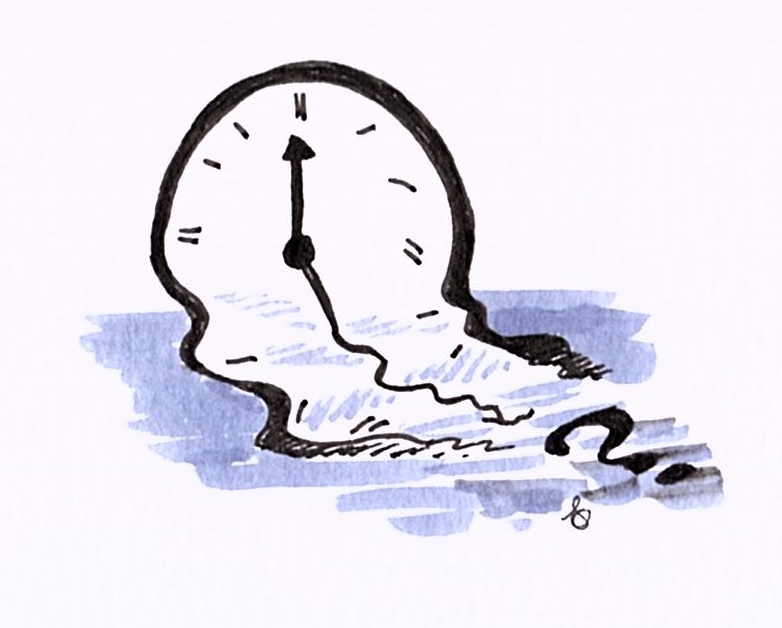Image by @Carcazan
The past 18 months have seen a flurry of immigration detention-related inquiries. If nothing else, this makes plain that we still need solutions to the entrenched problems associated with indefinite detention identified by the cross-party parliamentary inquiry back in 2014-15.
In September 2017, the Home Affairs Committee launched an inquiry into the allegations of neglect and abuse featured in Panorama’s undercover documentary on Brook House Immigration Removal Centre, near Gatwick Airport. In March 2018, the Committee decided to broaden the scope of its inquiry to include immigration detention as a whole.
“As these issues appear to affect the immigration detention estate more widely, the Committee have decided to broaden the inquiry to assess the extent to which they are systemic and the steps that could be taken to address them.”
– Home Affairs Committee
This decision followed the submission of strongly worded evidence of the endemic nature of the ‘culture of abuse and crisis of harm’ across the UK’s immigration detention estate.
“[W]e are saddened that it took a one-off documentary to bring to the attention of this Committee one of the gravest civil liberties and human rights abuses in the UK today. Equally concerning is that the Committee has chosen to only focus on ‘abuse’, and in Brook House, specifically. This, during a time when three people have died in detention in the last month alone – in Brook House, Dungavel and Morton Hall, respectively. The culture of abuse and the crisis of harm that led to these deaths, and which was illuminated so strongly in the documentary, is not unique to Brook House: it is commonplace across every detention centre in the UK.”
Only months later, the Joint Committee on Human Rights (JCHR) dived into the maelstrom surrounding the Windrush scandal, subsequently announcing its own inquiry into the impact of detention law and policy on fundamental human rights.
Since then, both inquiries have received over 100 written submissions. They have interviewed experts-by-experience who have previously been locked up in detention centres across the UK, as well as representatives from migration organisations, legal firms, the Home Office, the Independent Monitoring Board, HM Inspectorate of Prisons, and detention centre management teams. Immigration Minster Caroline Nokes has been called to give evidence, as has Stephen Shaw, the author of two Home Office-commissioned reviews into the UK’s detention policy and practice.
While it would be difficult to recap all the evidence, it’s worth pulling out a few key strands as we wait for both inquiries to publish their findings. Unsurprisingly, some of these strands reveal stark differences of opinion. One of these relates to the ‘indefiniteness’ – or otherwise – of detention.
The UK is alone in Europe in not setting a time limit on immigration detention. Detention is indefinite in the sense that there is no defined limit or end point. As JCHR Chair Harriet Harman explains, ‘the detainee steps into that detention centre and that detention is indefinite. They have no idea when they are going to be released.’
The Home Office, however, prefers to understand indefinite to mean ‘forever’. No one is detained forever; therefore, detention cannot be ‘indefinite’. As Nokes told the Home Affairs Committee, ‘Of course we cannot detain indefinitely. We can only detain people when there is a realistic chance of removal within a reasonable timescale.’ In a later appearance before the JCHR, Nokes suggested that it was up to the person detained to decide whether their detention was ‘indefinite’ or not. ‘A detainee can decide to return to their country of origin, which would obviously mean that their time in detention was not indefinite.’
While it’s true that Home Office policy and case law agree that people should only be detained where they can be removed within a ‘reasonable’ time, the Home Office is regularly found guilty of breaching these guidelines. Giving evidence to the Home Affairs Committee, Hugh Ind, Director General of the Home Office’s Immigration Directorate, admitted that ‘Sometimes, in retrospect, we are found to have made the wrong judgments. There are some very difficult judgments included in making an assessment of a realistic prospect of removal within a reasonable timeframe.’ Both inquiries heard from people who had been detained for longer than ‘reasonable’ would suggest – in one case for two and a half years – before being released, rather than removed.
In contrast, those who have experienced detention are all too aware of the meaning of ‘indefinite’.
“Upon my detention, if somebody had told me that they were going to detain me for five years it would have been excessive, but I would have seen an end date so that I could plan … I am sitting there, trying to speak to my family, trying to speak to my partner, and they are all asking, “When are you coming home?” Every time they ask that question, I well up. I get so angry, because I do not know what to tell them and nobody can tell me either.”
–Michael, Freed Voices
Unlike terror suspects, people in immigration detention are held without time limit, without charge, and without automatic judicial oversight. This sends a clear message to both detention centre and Home Office staff that values like dignity, respect, timeliness and rehabilitation are unimportant.
“Everything in detention is framed by the lack of a time limit. No time limit means there is no structure. You are treated like ghosts … you are passing through. There is no ‘plan’ for you so there is no investment in you as a human being.”
-Freed Voices’ submission to the Home Affairs Committee
“The difficulty about indefinite detention is that it looks different depending on which end of the telescope you see it. For the Home Office, it may not be indefinite detention; it is detention while your case is going through. For the person being detained, by definition it is indefinite because they do not have a definite date for when they are going out.”
-Rupert Soames, CEO of Serco Group
Whether this doublespeak makes it difficult for the Home Office to carry out its internal review of time limits on immigration detention remains to be seen. However, MPs from across the major parties have voiced concerns about indefinite detention, throwing their support behind a recent ten minute rule bill calling for a 28 day time limit.
Another area of disagreement lies with the distinction often drawn between ‘vulnerable asylum seekers’ and ‘dangerous foreign criminals’ in detention, implying that different rules are appropriate for different kinds of people in detention.
Aside from the fact that the categories of ‘refugee’, ‘asylum seeker’ and ‘person with criminal convictions’ are not mutually exclusive, as Gemma Lousley from Women for Refugee Women pointed out, this overlooks one key fact. Detention does not discriminate. Everyone who is detained is harmed, regardless of their life circumstances before or after detention.
“We have to be careful not to identify distinct cohorts of vulnerable detainees and foreign national prisoners. In my experience, many of the clients I have had who happen to be ex-offenders are deeply vulnerable, and many of the reasons why they commit offences in the UK stem from historical torture and trauma.”
As Nokes herself explained to both inquiries, the people detained for longest tend to be those with previous convictions. This is despite the fact that people convicted of a crime are known to the Home Office and within government custody for months or years prior to being detained. Deportation proceedings could potentially be resolved during a person’s custodial sentence, meaning that people with previous convictions could in theory be detained for the least amount of time. Yet many people – as in the tragic case of Michal Netyks – are only told they will be detained pending deportation on the day of their release from prison.
Why is it that people with convictions are detained for so long? One reason is that Home Office policy creates a system in which a history of offending overrides harm in detention. Speaking before the JCHR, Stephanie Harrison QC observed that people with previous convictions are ‘subject to some of the most serious breakdowns in rule of law protection’ – including violations of the UK’s obligation not to treat people in an inhuman or degrading way – ‘because the Home Office treated their criminal offending and the risks as justification for prolonged detention’.
Another reason lies closer to the heart of Home Office immigration policy and practice, and is something that most parties find agreement on. This is the role of detention – within a broader hostile or ‘compliant’ environment – as deterrent and punishment. In a letter to the Home Affairs Committee, Philip Rutnam, Home Office Permanent Secretary, described part of the strategic function of enforced removals from detention as ‘signalling to the wider community that the UK exercises coercive powers as an enforcement backstop for its immigration control’. And, as a ‘tool’ for ‘deterring immigration abuse’, detention is a lot more effective if it is indefinite.
“I am looking closely at the issue of time limits to understand how we can best have a detention system that is fair to those who may be detained but also upholds our immigration policies, and can act as a deterrent to those who might seek to frustrate those policies.”
Basic principles like ‘do no harm’ come second to this cause of coercion and deterrence. Tom Nunn, giving evidence to the Home Affairs Committee on behalf of Bail for Immigration Detainees, explains that ‘Doctors in these situations are in very difficult positions because often the cause of people’s mental health issues is their uncertainty about their ongoing detention.’ And this is particularly true of people in detention with previous convictions, whose ‘abuse’ of the system is seen to justify prolonged detention. Seen in this light, allowing the Home Office responsibility for determining what is ‘reasonable’ appears increasingly problematic.
A time limit – for everyone – would go some way to addressing the imbalance of power exacerbated by the uncertainty of indefinite detention. If implemented in conjunction with other proposals – including community-based alternatives to detention incorporating person-centred case management – a time limit would help to shift the culture of Home Office decision-making away from deterrence and towards engagement. Detention Action’s Community Support Project documents the impact of engaging with young migrants with a history of offending in the community, rather than detaining them indefinitely.
There are indications that this shift is already happening. It has become routine for the government to admit that it detains too many people. Speaking before the JCHR, Nokes committed the Home Office to trialling various alternatives to detention ‘hot on the heels’ of an initial pilot scheme with women who would otherwise be detained in Yarl’s Wood detention centre. A time limit on detention would cement this shift towards a system based on dignity rather than deterrence – but in order to do so, it must not leave anyone behind.





